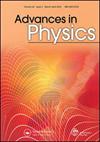热电学进展
IF 13.8
1区 物理与天体物理
Q1 PHYSICS, CONDENSED MATTER
引用次数: 307
摘要
热电发电机能够直接将热量转化为电力,在解决日益严重的能源可持续性问题方面有着巨大的前景。热电能量转换效率在很大程度上取决于材料的性能,该性能通过无量纲品质因数(ZT)来量化。因此,热电材料研究的核心问题在于不断提高ZT值。尽管热电效应是在19世纪发现的,但直到20世纪50年代,Bi2Te3和PbTe等经典材料才被开发出来,并建立了热电的基础科学。然而,热电的研究并不是一条平坦的道路,而是一条跌宕起伏的曲折道路。在20世纪70年代和80年代中断之后,从20世纪90年代开始,人们坚持不懈地致力于理解电子和声子的传输和耦合,确定提高现有材料热电性能的策略,并发现新的有前景的化合物。值得庆幸的是,材料性能得到了实质性的改善,打破了ZT的统一极限。同时,对热电的基本理解也取得了进展。综述了近年来热电材料的研究进展。本文首先回顾了改善和解耦单个热电参数的策略,并讨论了一些悬而未决的问题和明显不同的意见。重点介绍了一些良好热电材料的最新进展,并讨论了一些新发现的有前景的化合物。概述了热电材料研究中存在的挑战,并对未来的热电研究进行了展望。文章最后讨论了与热电相关的其他领域的主题。本文章由计算机程序翻译,如有差异,请以英文原文为准。
Advances in thermoelectrics
Thermoelectric generators, capable of directly converting heat into electricity, hold great promise for tackling the ever-increasing energy sustainability issue. The thermoelectric energy conversion efficiency is heavily dependent upon the materials’ performance that is quantified by the dimensionless figure-of-merit (ZT). Therefore, the central issue in the research of thermoelectric materials lies in continuously boosting the ZT value. Although thermoelectric effects were discovered in the nineteenth century, it was only until the 1950s when classic materials like Bi2Te3 and PbTe were developed and basic science of thermoelectrics was established. However, the research of thermoelectrics did not take a smooth path but a rather tortuous one with ups and downs. After hiatus in the 1970s and 1980s, relentless efforts starting from the 1990s were devoted to understanding the transport and coupling of electrons and phonons, identifying strategies for improving the thermoelectric performance of existing materials, and discovering new promising compounds. Rewardingly, substantial improvements in materials’ performance have been achieved that broke the ZT limit of unity. Meanwhile, advancements in fundamental understanding related to thermoelectrics have also been made. In this Review, recent advances in the research of thermoelectric materials are overviewed. Herein, strategies for improving and decoupling the individual thermoelectric parameters are first reviewed, together with a discussion on open questions and distinctly different opinions. Recent advancements on a number of good thermoelectric materials are highlighted and several newly discovered promising compounds are discussed. Existing challenges in the research of thermoelectric materials are outlined and an outlook for the future thermoelectrics research is presented. The paper concludes with a discussion of topics in other fields but related to thermoelectricity.
求助全文
通过发布文献求助,成功后即可免费获取论文全文。
去求助
来源期刊

Advances in Physics
物理-物理:凝聚态物理
CiteScore
67.60
自引率
0.00%
发文量
1
期刊介绍:
Advances in Physics publishes authoritative critical reviews by experts on topics of interest and importance to condensed matter physicists. It is intended for motivated readers with a basic knowledge of the journal’s field and aims to draw out the salient points of a reviewed subject from the perspective of the author. The journal''s scope includes condensed matter physics and statistical mechanics: broadly defined to include the overlap with quantum information, cold atoms, soft matter physics and biophysics. Readership: Physicists, materials scientists and physical chemists in universities, industry and research institutes.
 求助内容:
求助内容: 应助结果提醒方式:
应助结果提醒方式:


